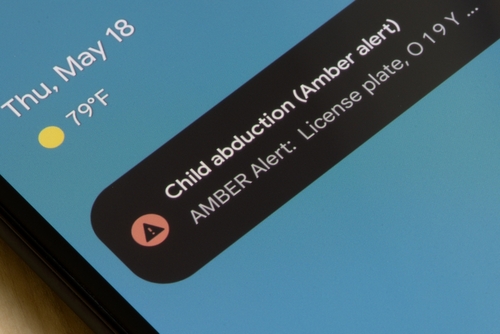Amber Alert system is not working for missing Native Americans, but there may be fixes

At the ABA Midyear Meeting, the House of Delegates acknowledged the disproportionate risks of abduction and violence experienced by members of Alaska Native and Native American communities. (Image from Shutterstock)
At the ABA Midyear Meeting, the House of Delegates acknowledged the disproportionate risks of abduction and violence experienced by members of Alaska Native and Native American communities.
Resolution 504 urges U.S. legislators to amend the Prosecutorial Remedies and Other Tools to End the Exploitation of Children Today Act, which in 2003 established the national Amber Alert program to help recover missing and abducted children. The proposed amendment would require the U.S. Department of Justice to appoint a national tribal coordinator to oversee Amber Alerts involving Alaska Natives and American Indians who tribes report as missing, abducted or in danger, the resolution sates. The Section of Civil Rights and Social Justice submitted the measure.
The resolution encourages government entities to ensure their Amber Alert systems also apply to Alaska Natives and American Indians who are 18 or older and reported missing, abducted or in danger by displaying information about these individuals within a state or within 100 miles of the boundaries of a state’s network. It additionally recommends the hiring of regional tribal Amber Alert coordinators who can work with state and local law enforcement and formalize internal and external reporting procedures.
“It’s unfortunate that there is an acronym out there—MMIP, Missing and Murdered Indigenous People,” said Mark Schickman, a Section of Civil Rights and Social Justice representative to the House of Delegates, who introduced the resolution. “We should have a manner in our society … to resolve this, and we actually do. There is an Amber Alert system in existence that is amazingly effective in terms of helping find and recover people under the age of 18 around the country.”
In 2018, Congress passed the Ashlynne Mike Amber Alert in Indian Country Act. The law was named for 11-year-old Ashlynne Mike of the Navajo Nation, who was abducted and murdered two years earlier, and amended the Protect Act. For the first time, it paved the way for federally recognized tribes to integrate their Amber Alert plans into state or regional Amber Alert programs.
However, the Department of Justice reported after the act’s implementation that tribal members identified ongoing challenges, including difficulty coordinating with their state Amber Alert coordinators and participating in the program given the size and terrain of their reservations, according to the report that accompanies Resolution 504.
ABA President Mary Smith also spoke in favor of the resolution, sharing with the House that the idea for the resolution came from an Alaska Native law student whom she met on a recent trip to Alaska. This law student, Smith said, told her the Amber Alert system was not applied nor effective in tribal communities and asked if the ABA could do anything about it.
Follow along with the ABA Journal’s coverage of the 2024 ABA Midyear Meeting here.
Smith connected the law student with the Section of Civil Rights and Social Justice Native American Concerns Committee, which helped draft the resolution. She also noted members of this committee assisted with a previously passed measure, which in 2020 urged federal, state, local, territorial and tribal governments to “acknowledge and prioritize responding to the Missing and Murdered Indigenous Women (MMIW) crisis.” It came about after then-ABA President Judy Perry Martinez and Smith’s trip to the Coushatta Tribe in southern Louisiana the previous year.
“We did not have policy,” Smith said. “I went back, I got some young Native attorneys who are active in the ABA, and this House adopted that policy. Following that, the president signed into law two pieces of legislation: Savanna’s Act and the Not Invisible Act. That is the power of what you all are doing.”
“So, I urge you to support Resolution 504,” she added. “It will make a tremendous difference in the lives of Native Americans across this country.”
Save Our Sisters Alaska, a statewide awareness campaign seeking to reduce high rates of violence against Alaska Native and American Indian women, drafted a proposal to again amend the Protect Act and address ongoing issues. Resolution 504 features many of its tenets, including that Amber Alerts should be issued in cases involving adults.
Several ABA entities, including the Coalition on Racial and Ethnic Justice, the Commission on Domestic and Sexual Violence and the Commission on Women in the Profession, co-sponsored the resolution. It passed overwhelmingly.
This year’s ABA Midyear Meeting is in Louisville, Kentucky.
See also:
“Two young Native American lawyers call for action on missing and murdered indigenous women”
“America’s Lost Children: Reckoning with the abusive legacy of Indian boarding schools”
“Human rights violations at American Indian boarding schools must be investigated, ABA House says”
Write a letter to the editor, share a story tip or update, or report an error.



